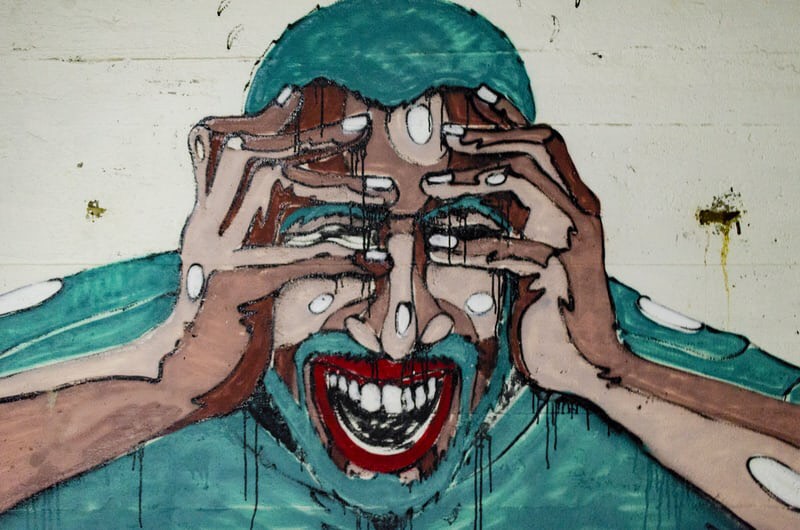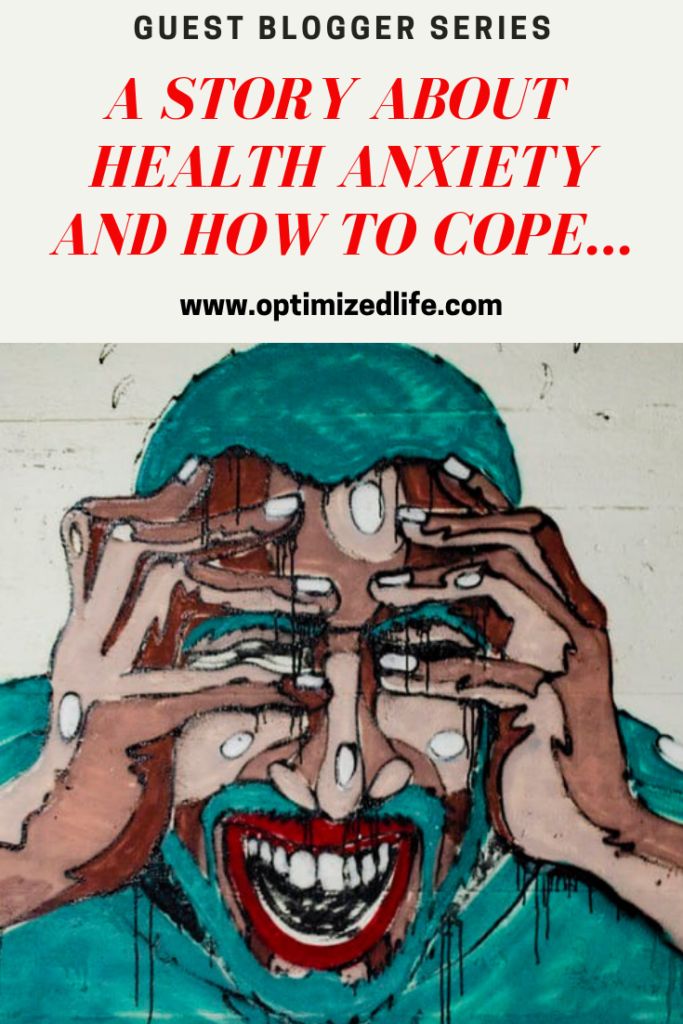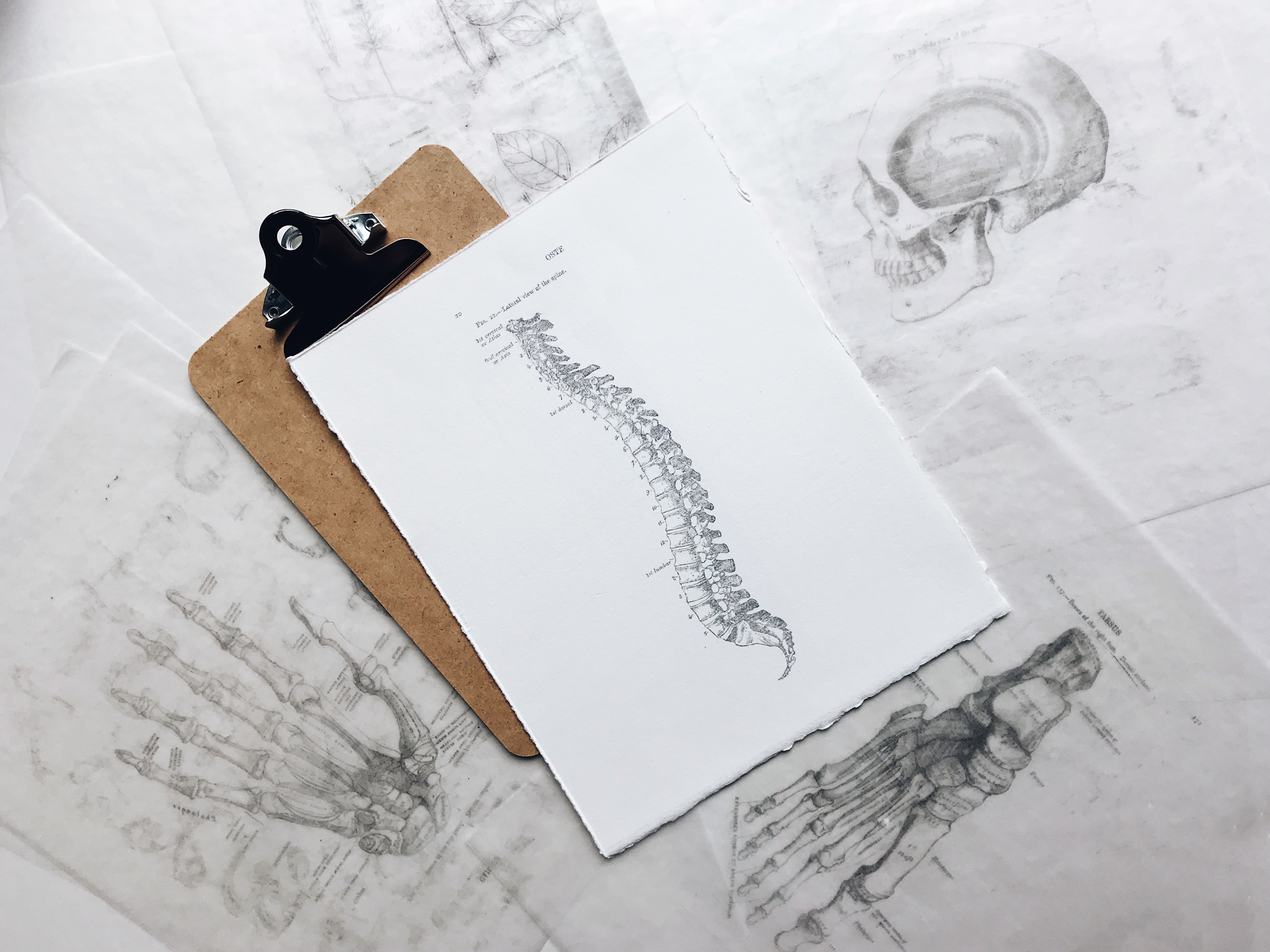The typical motto “we’ll all die someday” isn’t a source of comfort to me as it seems to be to everyone else. After all, I’m what they call a hypochondriac.
When you think about it, there’s no real reason for a freshly turned 21-year-old young woman to hold a sickening dread about her overall health. The slow realization that I might be wasting the prime of my life away hurts me, but then it dawns on me that my fear of disease is a disease itself.
Hypochondria (noun) – abnormal anxiety about one’s health, especially with an unwarranted fear that one has a serious disease.

Although most people know the disorder by this common name, hypochondria should now be referred to as “health anxiety” or “illness anxiety”. This way, it’s easier for non-sufferers to connect the seemingly unfounded beliefs to an illness, rather than paranoia or other pejorative terms.
Health anxiety isn’t restricted to older people whose life is approaching the end. After all, we’ll all die someday, and someday could be any day, couldn’t it?
If there was a starting point to my consuming fear, I don’t recall what it was. However, I remember it being at its peak when I was 15 years old and terrified of having cancer. I maintained a healthy lifestyle, exercised, and had no cancer history in my family, which would likely invalidate this fear for most people. But not for me.
My loved ones had a standard way of trying to calm me down. “Why would this happen to you, out of all people?”, they asked, when all I could think of was “Why would this nothappen to me? It could happen to anyone, and I’m no different than them.”
Intrusive Thoughts
Day after day, my mind was consumed by intrusive thoughts of decaying health. Me on a hospital bed, saying goodbye to my family and looking in the bathroom mirror as I watched my body deteriorate.
I know the human body is convoluted and dangerously smart—I learned it in school, very deeply if you ask me, but not nearly as deeply as it knows itself. I thought to myself: “all these organs and functions could turn against me at any moment. I know how they work fairly well, but I can’t control them”.
In trying to shun these twisted ideas all day long, I got tired—physically tired. Bedtime was my favorite moment of the day because it was the only time I could shut everything off and sleep at last.
Asking for Help
Much to my chagrin, my polluted unconscious had already gotten a hold on me, so much that the intrusions started bothering me even in terrifying, realistic nightmares about disease and death. I wasn’t in peace anymore, not even in my sleep.
I couldn’t deal with this on my own, and I was desperately in need of immediate psychological help. That’s when I begged my parents to let me start seeing a therapist. They witnessed my suffering daily, so thankfully they didn’t hesitate to say “yes”.
I think therapists are the superheroes of modern days. They’re capable of penetrating the human mind with professionalism and sensibility while assuring you that whatever you think is a poisonous and unchangeable behavior is actually an inherent part of human nature—your human nature. That’s why I’ve been to so many of them, and I’m not ashamed of it, not one bit.
However, this first visit was anything but what I had expected it to be.
This lovely therapist I started seeing (and have continued to visit ever since) carried beliefs I wasn’t fond of.
She grabbed a piece of paper and sketched out a tiny list. It read “Education”, “Relationships”, “Family”, “Health”, in this particular order.
“This is the order you should base your life on”, she said, going through the list with her index finger. “There’s no reason a 15-year-old should fear something like cancer at that age”. She proceeded to talk about the very low statistic-based chances of a girl my age getting cancer.
After this contradictory pep-talk, I walked home with a million thoughts running amok in my head: “What about the newborns that die before they get to experience the world? What about the 5-year-olds with leukemia? What about a silent illness that evolves without warning?”.
I refused to accept that disease and tragedy only presented themselves to older people. My grandmother, who underwent a breast cancer operation a few years ago, assured me that “children don’t get sick like this”. But I was no longer a child.
I knew therapy was just what I needed, but it would be of no use if I didn’t apply the lessons I learned when I was by myself. I realized that I couldn’t wait for someone else to fix me. Instead, I should use the pointers to be the change I wanted to see.
Making my health anxiety manageable was an arduous matter of trial and error, and of course, talking about my fears out loud. Hopefully, what I did might be just what you need to get your healing journey started.
Take Care of Yourself, and Leave the Rest to Faith
By “faith”, I don’t necessarily mean religious faith. Not everybody is religious, and that’s perfectly fine.
I found it hard to heal when I couldn’t believe in myself and in nothing else. I was stagnant. I could only do so much about my health, and the rest, well, I couldn’t predict it. It took me months, but I finally realized that everyone’s in the same boat.
Anyone could receive terrible news tomorrow, about anything. But are they worried about it? No. They’re more concerned about getting an A on that exam, landing that job, or making a living. This was the only circumstance where comparing myself to other people has helped me immensely. People worry about what they know, and that’s enough.
Have something to look forward to. Start watching a TV show, and be curious about what’s going to happen next. Start working on something you’re passionate about. Study, go to work, and try to do your best, always.
Read a book and be eager for the next chapter. Meet new people. That’s how you’ll slowly but surely have faith that there’s much more to the future than just exhausting worry—there’s light in it.
Watch your health, do your yearly checks and blood tests. That’s your part done. The rest isn’t up to you.
Know That You Don’t Control Outcomes
Us anxious people have this thing in which we always brace for the worst. I used to think that if I pictured the most catastrophic outcomes they would be more unlikely to happen. This sent my brain into a negative loop, day after day.
Well, that’s complete BS. Truth is, no amount of worry will change what’s meant to be. This used to scare me, but then I went “you know what? I’m tired”. Thinking about nothing but illness and death was mentally burdensome, and I wanted my life back. That’s when I started regaining my force.
Instead of trying to fight the “what ifs” with logic and having them defeat my logic with even stronger negative thoughts, I let them party inside my head. Try it. Let the thoughts be, they’re just thoughts, after all!
It was really hard not to interact with my negativity at first. What helped me was reminding myself that thinking won’t hurt me, and thoughts are but reflections of my unconscious mind.
Remember: It’s a Disorder
Health anxiety is, as the name suggests, one of the branches in anxiety disorders. It’s an illness. First of all, get this into your head.
Like all illnesses, health anxiety creates symptoms, whether they are physical or psychological. The intrusive images in your head, the overwhelming fear…they’re mere symptoms.
When you have a cold, you treat your pesky symptoms with medicine and vitamins. With health anxiety, the treatment is talk therapy, meditation, reading, creating, exercising, and, above all, doing something you’re passionate about. This way, you’re not getting rid of the symptoms, you’re simply living with them until they subside.
Sometimes, anxiety sufferers might find relief in anti-anxiety medications. If you consider this possibility, talk to your psychiatrist to choose the best option for you.
Have a purpose
As I write this, I’m sitting relaxed on my college chair. It’s cold, but I’m not wearing a jacket. What if I get pneumonia? What if? I’m focused on the task at hand, and I love what I’m writing.
I have a boyfriend, and I love him so much. I can’t wait to hug him when I see him. But what if I get pneumonia? Well, I need to finish this article so I can go to the car, grab my jacket, drive safe and warm, and get home to hug my boyfriend and ask how his day was.
See, you’ll find that when you’re willing to live, grow, work on your dream and have a future by yourself or with someone, your fears can wait a bit longer for their turn. They’re still there, but they’re overshadowed by much stronger things: love and faith.
I’ll get my jacket as soon as I leave.
Laila is a freelance writer and full-time dreamer. She holds a deep passion for writing and aspires to make a difference to those who feel detached from this crazy, yet wonderful world we live in. She’s also a feature writer and social media manager at Into The Script.





